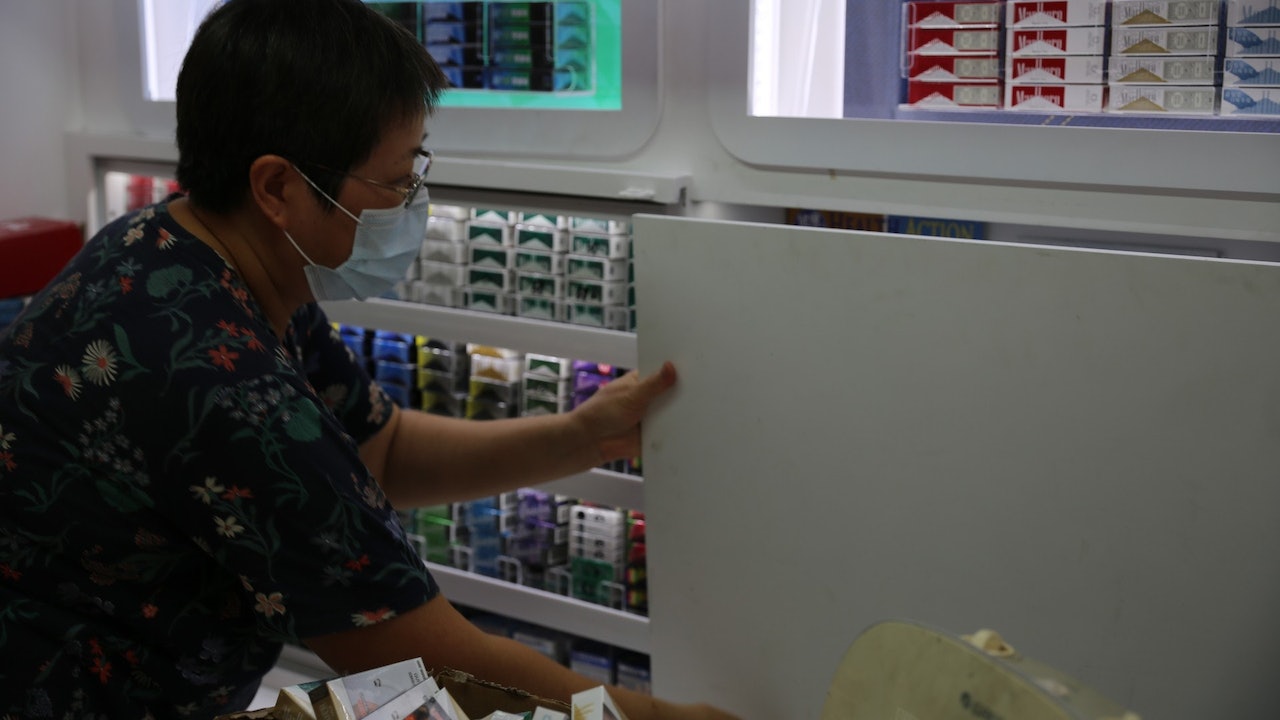Chief Executive Li Jiachao mentioned in his policy address that he requested the Medical and Health Bureau to reduce the smoking rate from the current 9.5% to 7.8% by 2025.
A few days ago, the Hong Kong Smoking and Health Committee proposed to significantly increase the tax on cigarettes. Next year, the cigarette tax will be increased by 100%, and the retail price of each pack of cigarettes will rise to nearly 100 yuan. After that, the tax will be increased by 50% each year for the next two years. About 200 mosquitoes.
From an economic point of view, increasing tobacco taxes can definitely suppress the demand for cigarettes, but at the same time, the elasticity of substitutes and demand must be considered.
An economics professor said that even increasing tobacco tax by a factor of 1,000 may only effectively reduce demand numerically, while actual demand may be transferred to other "substitutes", such as smuggled cigarettes, which may not help improve public health.
The Hong Kong Smoking and Health Committee proposed on Thursday (3rd) that the Hong Kong government needs to significantly increase the tobacco tax in order to reach the KPI of 7.8% of the smoking rate within two and a half years.
The committee proposes to increase the cigarette tax by 100% next year, bringing the retail price of a pack of cigarettes to nearly 100 yuan.
In the next two years, the tax will be increased by 50% each year. By 2025, the retail price can be raised to about 200 yuan, and the high price can encourage more smokers to quit smoking.
Raising tobacco tax is not a new initiative. As early as 2009, the Hong Kong government raised tobacco tax three times, by 50% in 2009, 41.5% in 2011, and 11.8% in 2014.
The retail price of a pack of cigarettes has doubled from 29 yuan in 2009 to about 60 yuan.
Indeed, as tobacco taxes increase, the number of smokers decreases.
According to data from the Tobacco Control Information Station, daily smokers accounted for 11.1% of the population in 2010, which dropped to the lowest level of 10% in 2017, but rebounded to 10.2% in 2019.
Tobacco tax increases, cigarette prices rise, but most of them are borne by consumers
Is increasing tobacco tax effective in reducing smoking demand?
Maybe it can be discussed in terms of economics.
Xu Jiajian, associate professor of the Department of Economics of Clinson University and visiting associate professor of the Department of Economics of the Chinese University of Hong Kong, briefly explained the economic concept of taxation, "In economics, when the government increases taxes on suppliers, some of the tax costs will be passed on to In terms of consumer prices, suppliers will not bear the full cost. Therefore, when the government imposes cigarette taxes, the direct effect will make cigarettes more expensive.”
Anyone who has read economics will recall that the tax burden can be borne by producers and consumers separately.
Xu Jiajian mentioned that the situation of selling cigarettes in Hong Kong is quite special. Most of the tax burden is borne by consumers. In disguise, the tax increase and the price increase are "one to one", and manufacturers have the ability to pass the tax burden on to consumers. .
In addition, Professor Xu mentioned that although consumers will buy less expensive cigarettes, they should also consider the "substitutes" of cigarettes in Hong Kong.
For example, he pointed out that smuggled cigarettes (duty-unpaid cigarettes), heated cigarettes or electronic cigarettes are quite common in Hong Kong, and consumers also have certain channels to buy them. In disguise, the demand for cigarettes, which was originally low in elasticity, has become more elastic due to the increase in substitutes. Flatten the demand line.
When the tobacco tax is further increased, due to the high elasticity of demand, consumers will have more room to choose substitutes other than duty-paid cigarettes, which will greatly reduce the demand.
Xu Jiajian said frankly that, from an economic point of view, after the increase in tobacco tax, the demand for officially imported duty-paid cigarettes has indeed decreased, but it is unknown whether smokers have decreased due to this.
Because they may have more incentives to choose smuggled cigarettes or heated cigarettes, etc., they will ultimately be of little help in improving public health.
Who is the big winner?
Who is the big loser?
It is an indisputable fact that the increase in tobacco tax will reduce demand, but it is impossible to test whether the smoking rate can be reduced, and whether it can even improve public health.
Xu Jiajian's analysis pointed out that after the increase in tobacco tax, consumers seeking other substitutes, or buying smuggled cigarettes at higher prices, or smoking cigarettes of lower quality, will inevitably become losers.
However, as demand for things like smuggled or heated cigarettes increases, pushing up prices, smugglers are more lucrative and may be the winners under the cigarette tax.
As for whether the Hong Kong government is a winner or a loser?
Xu Jiajian believes that if many smokers switch to buy other substitutes because of the increase in cigarette tax, it may show that the number of tax-paid cigarettes purchased will decrease, but even if the tax rate is increased, the tax revenue will be reduced due to the total amount.
On the other hand, more smokers are smoking smuggled cigarettes or heated tobacco products, which will ultimately fail to effectively improve the level of public health, and the government may lose more than its gains.
The Smoking and Health Committee advocates a 100% increase in tobacco tax next year, a lifetime ban on buying cigarettes for those born after 2009, a smoke-free generation, or a ban on buying cigarettes in the future, 7.4% of Hong Kong middle school students have ever smoked. Smoke Ridiculous: Do you have any friends please?
People born after 2009 plan to ban smoking. The commission says tobacco violates current standards Shao Jiahui: People have the right to choose







/cloudfront-eu-central-1.images.arcpublishing.com/prisa/MUZAD6ZH7FE53M2E2YXOBV5XHU.jpg)

/cloudfront-eu-central-1.images.arcpublishing.com/prisa/KMEYMJKESBAZBE4MRBAM4TGHIQ.jpg)


/cloudfront-eu-central-1.images.arcpublishing.com/prisa/EXJQILQR5QI7OMVRTERD7AEZAU.jpg)
